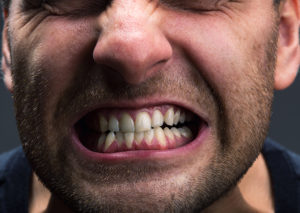Causes Of Grinding Teeth Anxiety

Grinding teeth is the act of voluntary or involuntary clenching of the teeth during the day or at night. Grinding teeth is seen both as a general medical condition, as well as dental one, because it affects teeth and structure around them, including the head.
Visiting your dentis at a dental clinic open now in Sydney will be able to provide you information and assist you in this condition.
Grinding teeth anxiety also occurs in children; it causes improper alignment of the teeth or their improper growth process. But while in children the condition is improved with the increase in age illness continue being aggravated by stress. Severe cases require special attention to prevent complications.
Causes of Grinding Teeth Anxiety
About causes, opinions are divided – while some experts believe that stress is the leading cause of bruxism and can hardly affect the teeth, others think that this disease is transmitted genetically and has no specific effect on teeth.
- Stress
Is the most common cause of bruxism. Stress can disrupt sleep, causing episodes of involuntary bruxism.
- Aggression
Bruxism can be a sign of frustration and repressed anger or an aggressive personality, in the second case the aggression is expressed.
- Abnormal alignment of the teeth
Experts believe that incorrect alignment has to lead to the involuntary friction of teeth when they overlap.
- Development of teeth and jaw
This is a common cause in children up to age seven as teething can cause itching in the gums. Gnashing is a response of the body to process. Usually, as time passes, this condition improves.
- Complication of another disease
Studies have shown that grinding teeth can be a complication of diseases such as Parkinson’s or Huntington. The first is a degenerative disease that affects motor skills, and the second is neurological and affects coordination of movement.
Symptoms of grinding teeth anxiety
Because grinding teeth occurs mostly at night, the person who sleeps beside the patient can observe the main symptom.
- Facial pain. Although the most affected area is the mouth, jaw contractions may affect the adjacent muscles. Pain in the facial muscles is widespread.
- Erosion of enamel. People who suffer from grinding teeth anxiety usually have teeth with exposed dentin or are worn, cracked, chipped.
Grinding teeth anxiety treatment
Often mild bruxism is a condition that does not lead to complications and therefore requires no treatment. But when the effects are visible, there are remedies, depending on the underlying cause.
 Techniques to reduce stress. Usually can reduce stress by relaxing the total body through meditation and exercise. For more severe cases psychological therapy is recommended.
Techniques to reduce stress. Usually can reduce stress by relaxing the total body through meditation and exercise. For more severe cases psychological therapy is recommended.- Behavioral Therapy.When bruxism is usually considered to be a behavioural problem a behavioural therapy treatment is needed.
- Medications. Some doctors may prescribe muscle relaxants, but the effect varies from person to person. Self-medication is not recommended.
Vitamin C 1000 with extended-release help fight colds and viruses states, which often presents with bruxism in children, has an anti-stress effect and contribute to cartilage and bone fibers synthesis.


